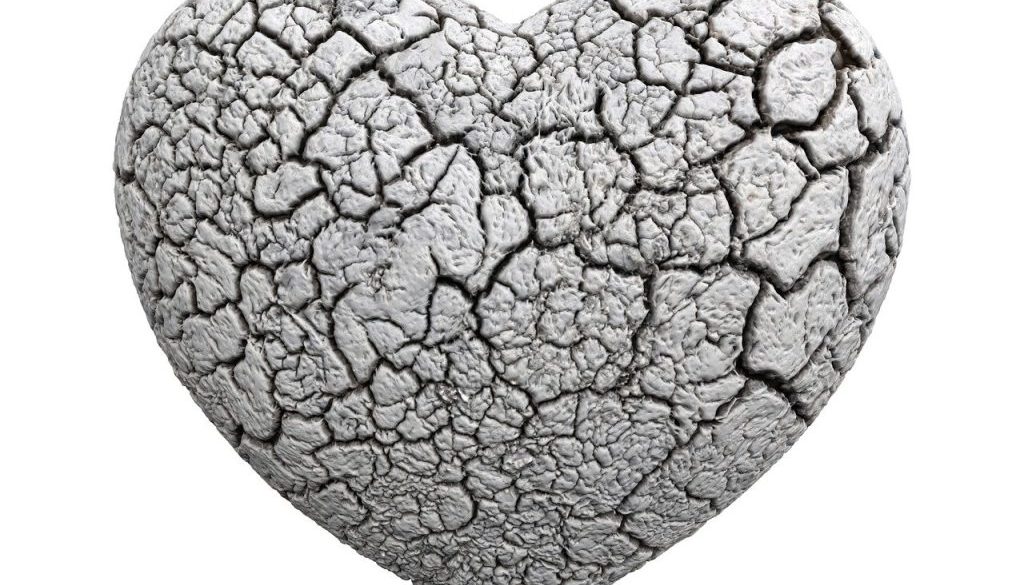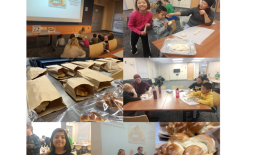Our Hearts Are Faint
Earlier this week on Facebook, I shared communications from T’ruah, the Rabbinic Call for Human Rights on letting in food into Gaza and signed onto a ‘Jews For Food Aid For People In Gaza’[1] campaign. The latter has so far brought together almost five hundred fellow rabbis and eleven thousand other Jews, including 78 Jewish organizations and 37 congregations. With a simple purple and turquoise design, the campaign was effectively simple: petition to let food aid in for Gazan civilians who are facing real and life-threatening deprivation and starvation. While statistics are hard to verify in a warzone and developments happen fast, the World Health Organization reports the following on the 12th of May:
“The entire 2.1 million population of Gaza is facing prolonged food shortages, with nearly half a million people in a catastrophic situation of hunger, acute malnutrition, starvation, illness and death. This is one of the world’s worst hunger crises, unfolding in real time.
…Since the aid blockade began on 2 March 2025, 57 children have reportedly died from the effects of malnutrition, according to the Ministry of Health. This number is likely an underestimate and is likely to increase. If the situation persists, nearly 71,000 children under the age of five are expected to be acutely malnourished over the next eleven months…”[2]
Some of us have consumed media that put Gazan children’s faces and names to these statistics. Like two-year-old Mayar al Arja, a toddler with celiac disease who is wasting away for lack of appropriate food aid (as reported by PBS.[3]) While these last few days, Israel has let in a minimal amount of food aid; it is desperately not enough.
In some ways this sermon is a repeat of a sermon I gave over a year ago, also about hunger in Gaza. It lays bare the protracted cruelty of this one-and-a-half year: at least 24 living hostages still languish, together with 34 of their dead compatriots, in Hamas’ tunnels. Around 92% of the Gazan housing stock has been damaged or destroyed including its schools, hospitals and universities – it is hard to imagine the Strip will ever be livable and that Palestinians will ever attain dignity and sovereignty. Hundreds of thousands of Israelis continue to pour into the streets to bravely protest their own far-right government and to call for an end to the war and hostage release, while the hardened hearts of their own politicians refuse to cede to their own civil society’s demands. Thousands of Gazans, despite their deprivations and at great personal risk, have protested against their cruel and totalitarian Hamas government. In other words, we are witnessing a sickening, crushing cycle of violence afflicting millions of innocents with no end in sight and little horizon of hope.
Added to this, is the shocking murder, a few days ago, of two young Jewish diplomats, Sarah Milgrim and Yaron Lischinsky at an American Jewish Committee event in Washington DC; in what should be the beating heart of civic life and enduring democracy here in the USA. Although the investigation is still pending, we know enough about the motivations and actions of the murderer for this to be (legally) classed as an antisemitic hate crime, sending shockwaves across the American Jewish community. Political, racist, antisemitic and anti-Palestinian domestic violence seems to have become a hallmark of our discombobulating times.
Our worldwide Jewish community is small, where six degrees of separation often feels more like two. Our grief is raw and real and is scattered across disorienting winds of pain. We grieve over what Israel has become, what has happened to Gaza and the West Bank. We grieve the state of this country, the unrelenting polarization tearing civil society apart and threatening to compromise our liberties. We grieve the demise of our sense of safety as Jews. We grieve our moral standing in the world at the hands of this Israeli government prosecuting this destructive and fruitless war – a moral catastrophe with which we will grapple for generations. We grieve the hostages both living and dead, subjected to torture and privation; the civilians in Palestine hungry, displaced and dead. We grieve the loss of our cherished dreams, our moral orientation and our expansive vision; we feel a quiet loss of personal relationships and crumbling solidarity. As the Book of Proverbs (29:18) poignantly states: ‘b’ein chazon yifra am’ – without vision, the people lose restraint.’ The perennial question remains: how do we dwell in a hurting world.
We Jews know how to mourn. We know it in our bones, in our texts, in our history. We feel it in every casserole and kugel we bring to a Shivah; to every ‘amen’ we say in response to every ‘yitgadal v’yidkadash’. We know it from how there is a kernel of pain embedded in many of our holidays, a crack, because ‘that’s how the light gets in.’ And at the same time, we feel the weariness as we, with heavy tongues, speak the names of the suffering and dead. Mayar. Sarah. Yaron, the latest among a list that is unbearably long. And countless others, lives and worlds snuffed out. Our hearts are faint.
So we walk this continued Shivah; this complicated, collective grief that knows no closure and for which we have few roadmaps. I am reminded of the paradoxes of this week’s double Torah portion, Behar-Bechukotai, which contains both the loftiest visions and the most harrowing nightmares. It describes two Jewish futures: one of abundance, in which we proclaim liberty throughout the land, remit debt and set people free. It is a vision of plenty, where the land itself will shower us with blessings as we trust it by trusting ourselves to build a more equitable world. The other Jewish future, however, is a vision of scarcity; of a constricted future, a life in the narrows where we experience violence and displacement, hunger and starvation, fear and faintness of heart; our lots cast upon those very winds of pain, ‘as a driven leaf.’
Our task in the wake of things too large for us to hold, is a heavy one. It is to hold it all as best as we can with each other. The memories of two young staffers in Washington DC and the scores of children who have perished in the Gaza Strip. The dreams of safety and peace of both Palestinians and Israelis. The fears within our Jewish community of real antisemitism as well as the politicizing of this antisemitism. We must hold this pain and name it, just like we name each human child who enters this life. ‘Each of us has a name’, the Jewish poetess Zelda famously wrote, ‘a name given by our enemies and given by our love, given by the stars and given by our neighbors’.
This appeal to humanity is echoed in one of the verses of this double portion: ‘v’lo tono ish et amito, v’yirata me’eloheicha – ani Adonai Eloheichem’ – ‘do not wrong one another, but fear your God, for I am Adonai your God.’ This is what binds the nightmare to the dream; the names of the living and the dead, the fates of two peoples intertwined between the River and the Sea; our common humanity baptized in our shared tears.
May our faint hearts be strengthened. May our tears crack open our souls so we can hold the humanity of all.
[1] https://www.foodaidforgaza.org
[2] https://www.who.int/news/item/12-05-2025-people-in-gaza-starving–sick-and-dying-as-aid-blockade-continues
[3] https://www.pbs.org/newshour/world/palestinian-children-suffering-from-malnutrition-overwhelm-gazas-nasser-hospital




